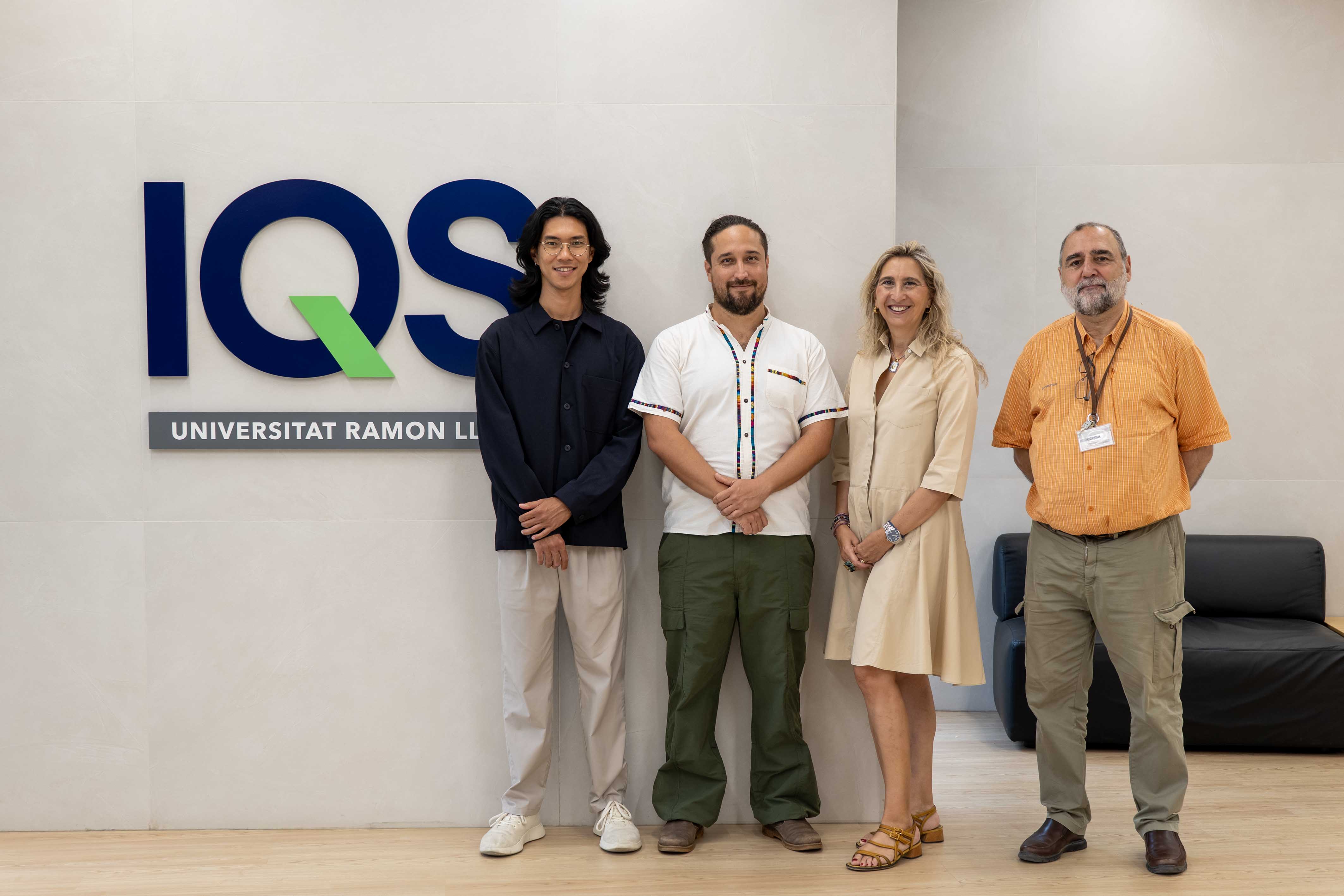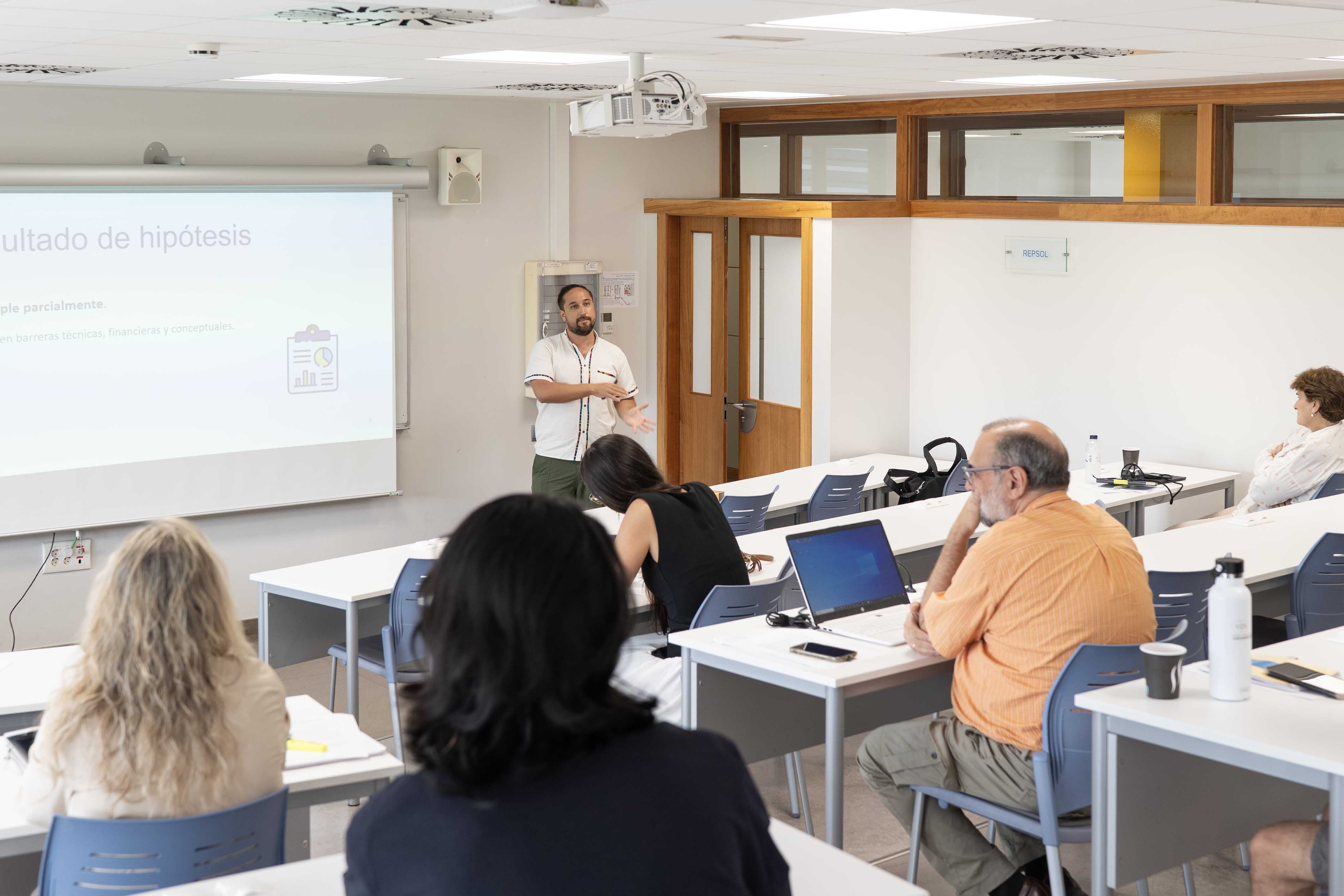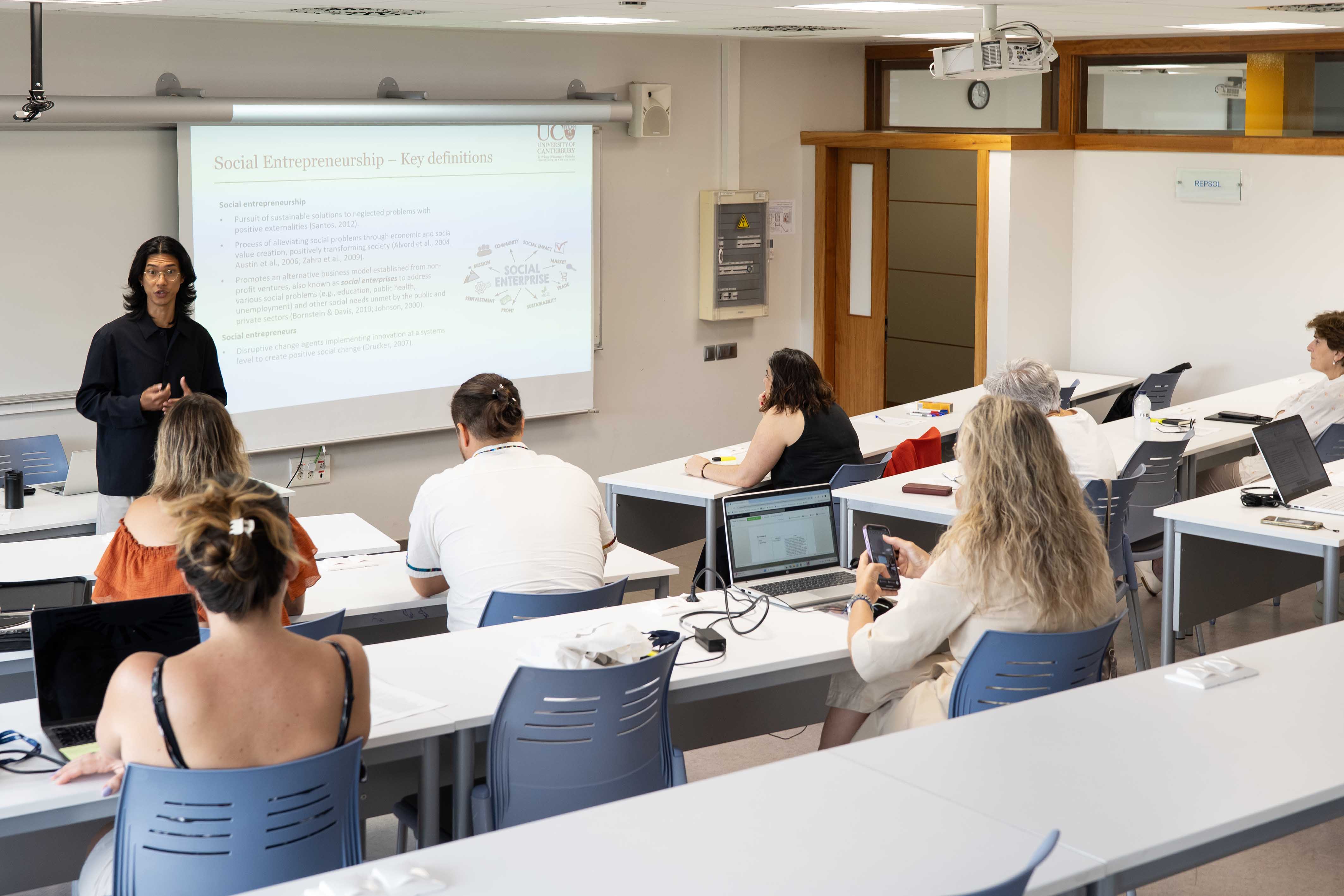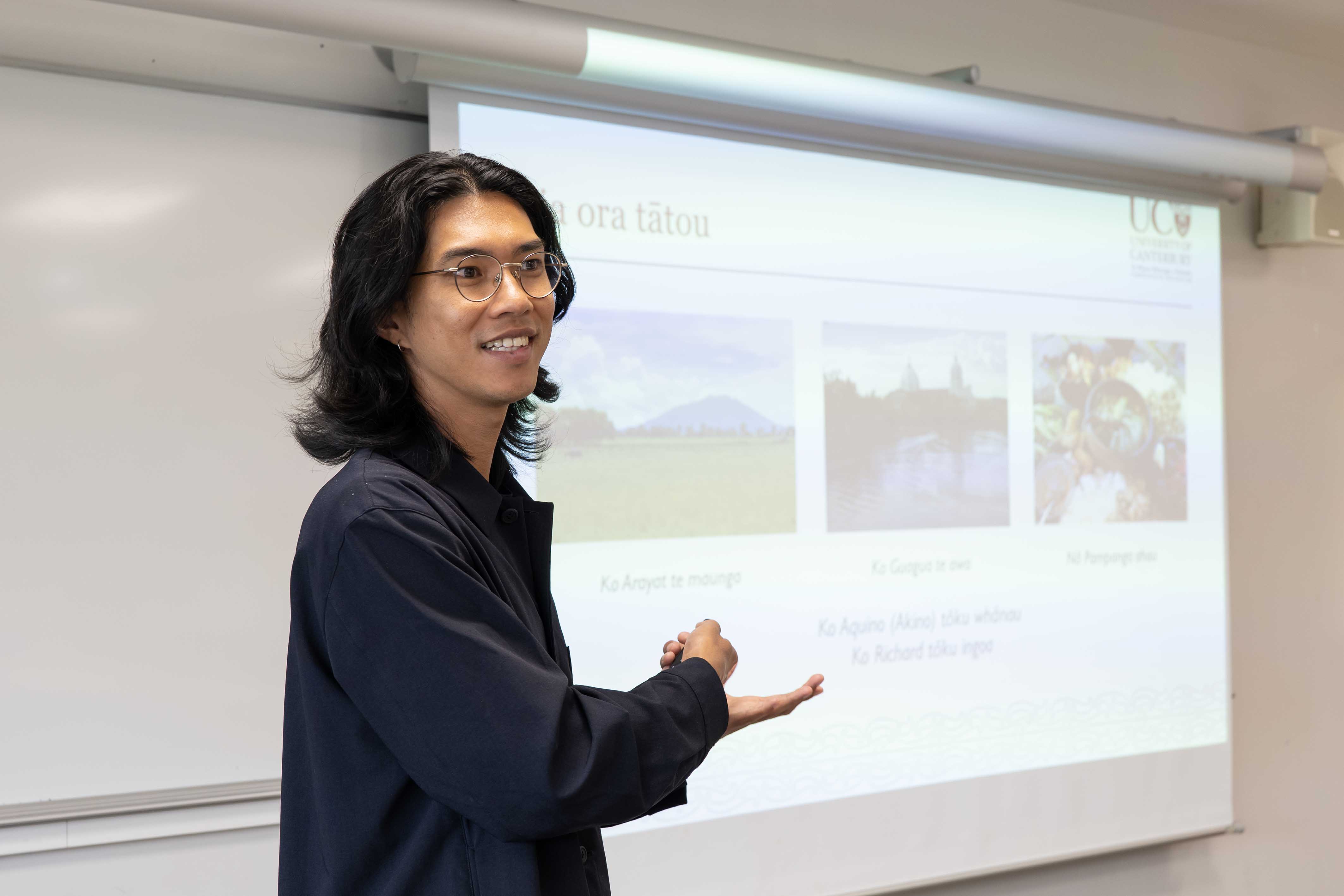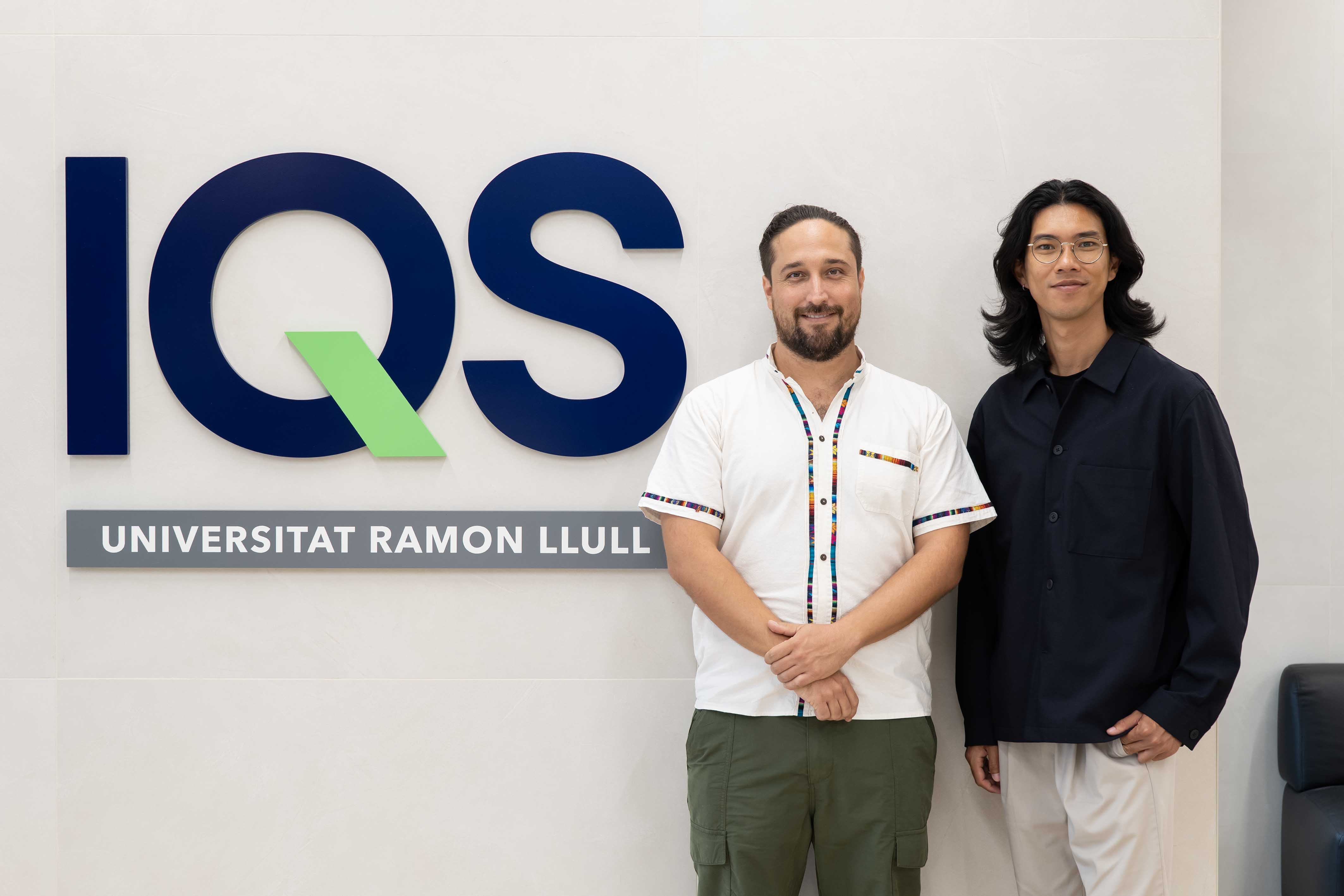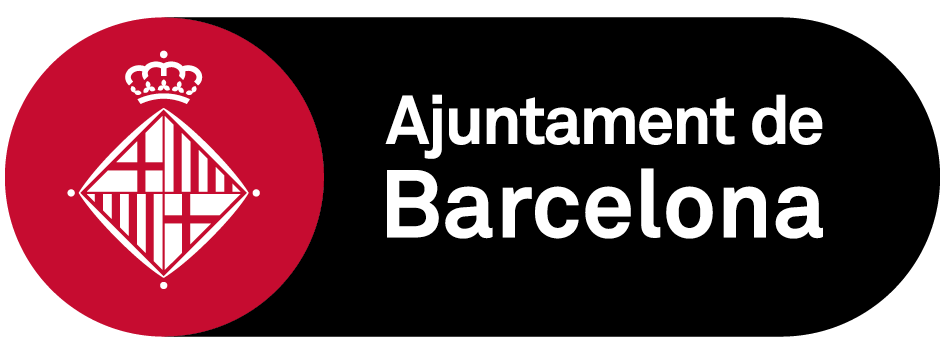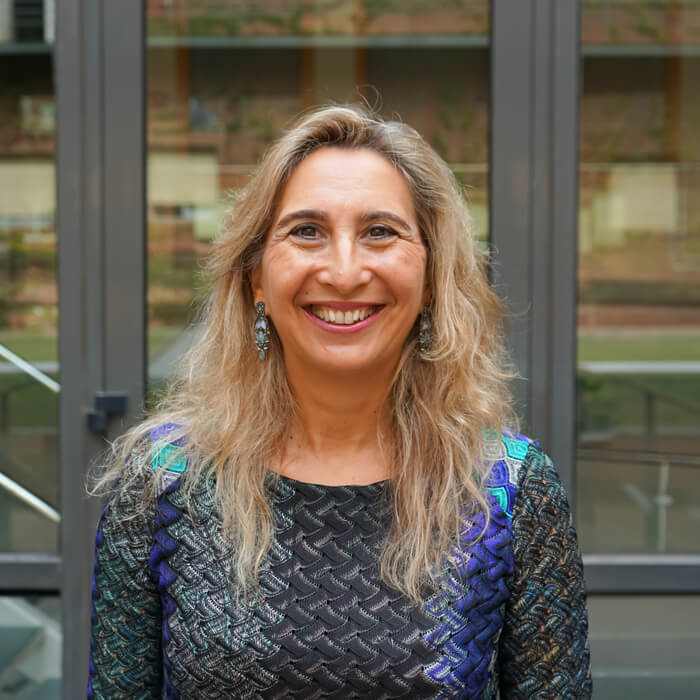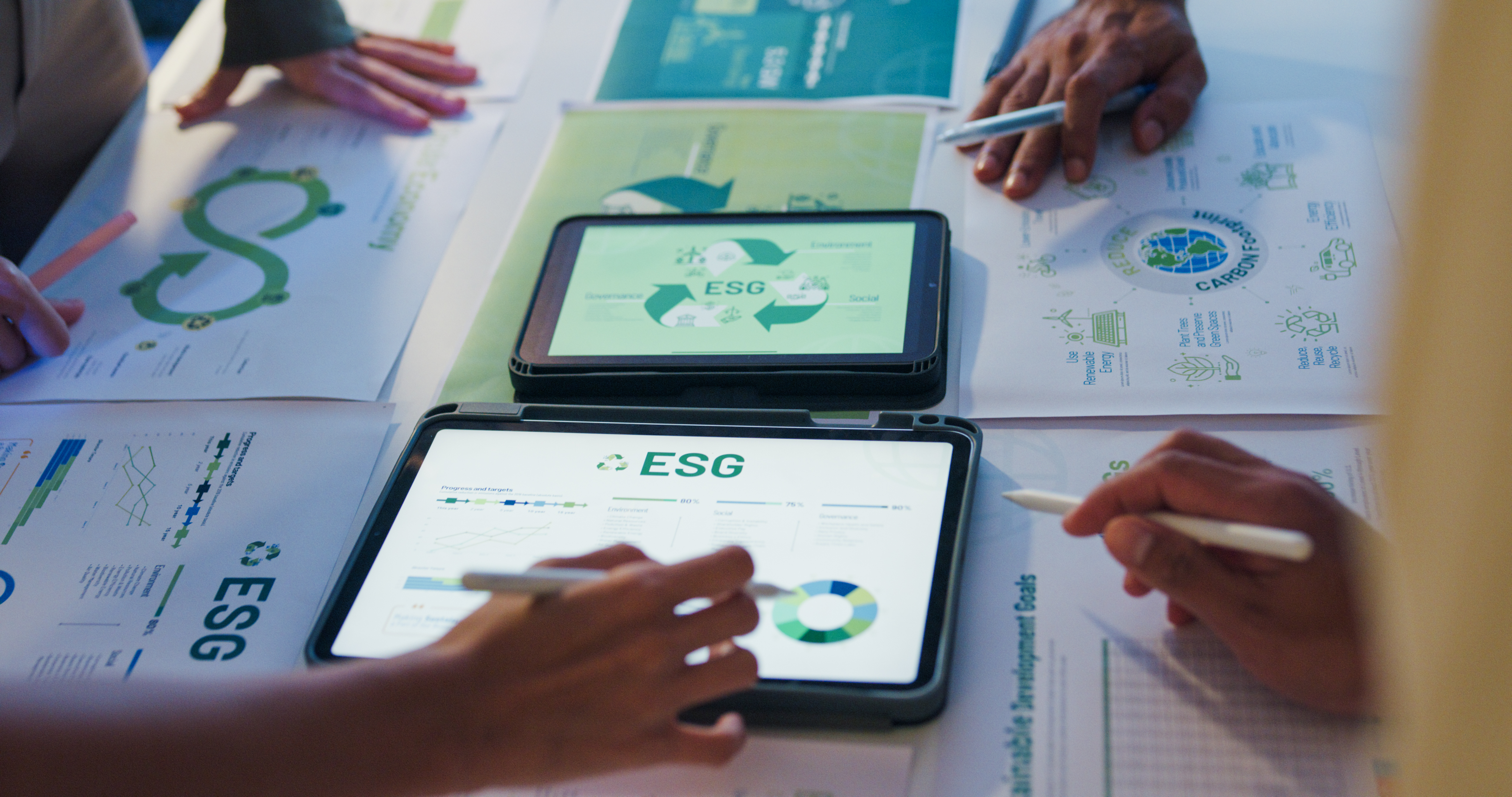This past July, the research seminar “Social Entrepreneurship in Tourism: A Path to Transformation” was held at IQS, organized by the Department of Tourism, Sustainability and Innovation (TSI) at IQS – URL as part of the project being conducted in collaboration with Barcelona City Hall in 2025. The main objective of the seminar was to jointly reflect on social entrepreneurship with agents in the tourism system and give visibility to alternative and complementary tourism models, both in academic and professional sectors and in society as a whole.
The seminars organized by the Department of TSI at IQS contribute, through research and knowledge transfer, to strengthening the role of the Department itself, as an axis of dynamization and as a reference space to analyse and tackle the challenges facing the sector.
Dr Daniela Freund opened the seminar and presented the speakers, thanking the presence at the seminar of both researchers from IQS and professionals from the sector, by inviting attendees to “reflect on more responsible tourism models committed to local communities and the Sustainable Development Goals.”
Social Entrepreneurship in Tourism
Social entrepreneurship is a process that provides innovative solutions to social and environmental problems. Considering its transformational potential, social entrepreneurship has been increasingly adopted in tourism development as it is able to provide economic, social, and environmental benefits to host communities while also addressing the negative externalities produced by dominant approaches to capitalist tourism development. As such, tourism development academics and activists strongly advocate for the adoption of social entrepreneurship to create a fair, equitable, and sustainable tourism industry.
The seminar that took place at IQS featured two international presentations that addressed the current challenges facing the field of sustainable tourism and the responsible development of tourist destinations from different perspectives.
The first presentation was given by Dr Richard S. Aquino from the Department of Management, Marketing and Tourism at the University of Canterbury (New Zealand). Under the title “Transforming Tourism and Local Communities through Social Entrepreneurship: An Ecosystems Perspective,” Dr Aquino conceptualized social tourism entrepreneurship from an ecosystemic perspective, showing it as the promotion of accessible and sustainable tourism with social objectives and as a benefit for local communities compared to the traditional way of undertaking business to only obtain commercial profit.
As examples, he presented the case of the Hotel con Corazón project in Central America, which sets aside part of its profit towards improving education for the population; the Make a Difference Travel project in the Philippines, which is a platform to help the education and economy for local residents and works towards restoring the environment; and the Authenticitys project in Spain, an online platform created by a community of entrepreneurs that designs experiences to connect visitors with the local population, thus generating positive impacts in the cities that are visited.
Dr Aquino analysed the case of the community on Culion Island in the Philippines in depth as an example of a transformative entrepreneurship ecosystem that helps build an alternative model of tourism development, with an economic approach that creates positive impacts on the community and its surroundings.
The second presentation was given by Professor Cristóbal Fernández Araujo from the University of Guadalajara in Mexico. Under the title “Measurement and analysis of responsible production in the hotel sector based on the SDGs,” he presented the research he is conducting for his doctoral thesis, focused on the practices of hotel SMEs in three towns in the Mexican destination of Rincón de Guayabitos on the Pacific coast of Mexico. The objective of his research is to measure the level of sustainability regarding the operating models for hotels in the Guayabitos region, where certain business models lack sustainable practices in their tourism services, with financial and business interests often predominating over social welfare or environmental protection.










